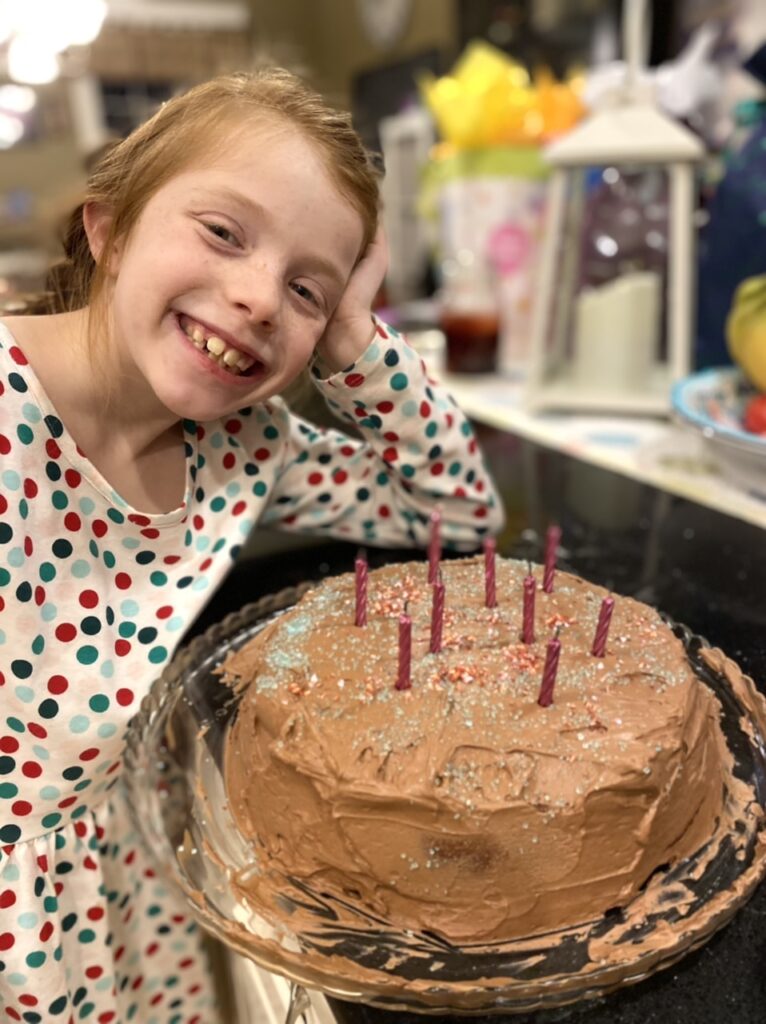Raising Worshippers
By Duane Garner, please read his words!
(simply compiled by Melissa Cummings)
One of the things I love most about our congregation is that we have the base level expectation that our children are ordinarily going to be in worship with us. We are principally opposed to the practice of shipping Christian children off to nurseries, children’s church and other places, because we want our children to be right beside us, learning how to worship. We want their little hearts and minds and bodies to be shaped by the liturgy, for them to ask forgiveness for their sins, sing the Psalms, hear God’s Word read and taught, give to the Lord, confess their faith and eat with Jesus at His table. We do not want to treat them as second-class Christians, who are relegated to play-time until they are old enough to do “grown-up” church.
But inevitably when you include infants and toddlers in worship, there are going to be all kinds of noises and distractions and times where babies are going to make everyone aware of their presence. That comes with the territory. We expect that a room with a bunch of babies in it is going to sound like a room with a bunch of babies, and we shouldn’t want it any other way. We want the babies in worship and all that they bring with them.
At the same time we do not want our children to remain infants with infant-level expectations all their lives. As they begin to mature they are able to worship with age-appropriate attention and participation. Very early on they can begin to learn the responses and songs we sing every week. They know when to raise their hands, when to close their eyes, when to kneel, when to put the offering in the plate, when to take the bread and the cup. A little later they can pick out words and read along, and before long they begin to even memorize a number of the hymns and Psalms.
This is what we are after, and the whole reason we have them in worship with us is so that they can, you know, worship. If we have a twelve-year-old who spends the whole service fidgeting, daydreaming, sprawled out and rattling paper, have we really accomplished anything by having him in worship his whole life? If that kid is the model of what we are shooting for, then we might as well just have children’s church. But if we want to train worshippers, then we are going to have to be deliberate and purposeful about their training before, during, and after worship.
My goal in writing this is to offer some instruction and thoughts on training children in worship, and to offer you some encouragement as you do the hard work of raising up little men and women who love to receive the ministry of Word and sacrament every Lord’s Day.
I will say a few things about expectations – what our expectations for our children and for each other’s children ought to be (along with how much grace, patience, and mercy we must have for parents in the middle of the great toddler pew wars.) I will share a few thoughts about minimizing distractions and helping little ones stay occupied during the sermon. Then I will offer up some tips on managing emergencies, meltdowns, blowouts, and catastrophes in the middle of worship. I intend to conclude with instruction on how to deal with disobedience in or after the church service.
My wife and I have taken our daughter and son to quite a number of child-oriented entertainment and educational venues over the years, and we always come home with the same observation. Children are never expected to sit still, be quiet, and pay attention anymore. Whether it is a movie or a theatrical production or a presentation on whales at the science center, if the audience has children in it, there is a constant hum of fidgeting, jabbering and sobbing radiating from a sea of perpetual motion. The last time we attended a children’s musical, there was a five-year-old behind us who talked at conversational level non-stop the entire show. I would hate to be the person up front with most of these audiences. I am pretty sure I would walk off stage just to see if anybody noticed.
When I see school-aged children unable to sit in a seat facing forward and keeping their lips closed for even fifteen minutes, I assume that it is because they are un-churched or that if they are churched, their church does not require them to ever sit politely and listen for any period of time. They do not know how to calm themselves and be still and quiet anywhere because there is never any expectation at any point in their lives that they do so. I don’t even want to know what their classroom at school is like.
Training children to worship means training our little men and women to participate energetically—for them to make lots of noise in singing and responding when it is time to do so, and to be very still and listen when it is time to do that too. This means that we have to expect a certain standard of behavior and communicate that to them effectively.
Our shared work as a congregation in training our children to worship is first about managing our own expectations and agreeing upon a shared set of expectations. Here is a short list of those that it seems we all ought to be able to agree on.
- We expect children of all ages to be in worship with us ordinarily.
- We expect that when you have a room full of physical embodied human beings of all ages, those humans are going to have various needs to attend to over the course of an hour-and-a-half worship service. We also expect that with a little foresight and planning, a significant percentage of these can be taken care of before and after worship.
- We expect that children over four to five years of age are ordinarily physically and emotionally capable of participating in all parts of worship to the best of their ability, and are able to sit, on their bottoms, facing forward, quietly, for the duration of the sermon.
- We expect that children are going to require considerable training to get them to this point, that there will be various setbacks and hurdles, and that children of all ages are going to need assistance and correction. Because we expect this, we don’t see accidents and lapses as colossal moral failings, but as opportunities for gentle correction and training.
- If we share these expectations, we then expect all other parents are having the exact same struggles that we are having and are as patient with them as we wish they would be with us.
The goal here is not to have a room full of weird silent ghosts or little robots, but to train ourselves and our children in how we approach a holy and mighty God in worship. It is hard work, no doubt. But training for worship is also training for all of life, and if you set the expectation that your children will learn how to be still and quiet, you’ll find out along the way that you’ve not only raised children who know how to worship, but children who also know how to behave in public around other people in all sorts of venues. That’s kind of a sweet two-for-one deal.
I emphasize the importance of setting and managing our expectations for ourselves and our children in worship. Including the expectation that “children over four-to-five years of age are ordinarily physically and emotionally capable of sitting in a chair, on their bottoms, facing forward, quietly, for the duration of the sermon.” That may seem like one of those things that go without saying, but given the fact that I have seen adults talk to each other throughout the entire sermon, and have on many occasions seen grown people get up in the middle of a Scripture reading and wander around the building for some reason, perhaps this is not something we can take for granted.
The problem is that not only are those who are talking and moving not fully engaged in worship themselves, apparently, but that they are also disturbing others by repeatedly breaking their neighbor’s concentration with movement and noise. For many people, a room with constant visual and auditory interruptions creates an environment where they cannot focus or pay attention at all.
Perhaps you may have never thought of this before, but if you or your children get up and down repeatedly during worship, if you regularly talk or make unnecessary noise, if your school-aged children are not sitting on their bottoms, facing forward, quietly for the duration of the sermon then I can tell you without hesitation that you are distracting most of the people behind you and around you. Your behavior is making worship difficult for someone else.
As I have conceded so far, some distractions are unavoidable and accidents surely happen. We all have to do a good job of ignoring little things and we are all responsible to pay attention despite what is going on around us. But none of us love our brothers and sisters by putting on a three-ring circus in our pew every Sunday morning.
Here are a few practical considerations for minimizing distractions in worship:
- Make bathroom and water fountain stops before worship begins. Unless you have a medical condition or an illness, you and your children should be able to make it all the way to the benediction without getting up again. On occasion you may have to whisper directly into a little ear “you are going to have to hold it for fifteen more minutes.” Sometimes children (or adults) just want to go to the bathroom because they are checked out and not engaged with what is going on. You need to be on top of that and correct that also.
- Take extra care to be still and quiet when God’s Word is being read aloud. This is critical. When the Scriptures are being read, God is speaking and we and our children must be very still and listen attentively. Do not move. This is never the time to wander off and get a drink of water or start a side conversation. Teach your children to respect God’s Word. Show them how we come to attention and listen to the voice of our Lord.
- If you must move or make noise, wait for transition times in the service, if at all possible. Do it when we are all shuffling and moving from one thing to the next together.
- If you cannot avoid making noise, do it as quickly and discretely as possible and get it over with. Unwrap the mint for the child and do it fast. Don’t allow them to sit and wrinkle the wrapper for twenty minutes. Better yet, have the mint (or the fruit snack) unwrapped before the service starts.
- With very small children, babies and toddlers, make a point of sitting in the back while you are training them. You know that they are going to make sounds and they are likely going to need to go in or out a few times during the service. That’s to be expected and it is all part of the blessing of having them in worship with us. When my children were small we always sat on the very back row so that when we had to excuse ourselves we did so with minimal distraction to people around us. But in order for us to be able to sit in the back we needed to have that space open. So then families with older kids (who are trained to sit on their bottoms, facing forward, quietly for the duration of the sermon), need to move toward the front and leave the back seats for families with infants and toddlers. This ought to be common sense.
Church is not a museum or a concert hall. It isn’t a library or museum or mausoleum or monastery. We aren’t aiming for perfect silence and stillness. A crying baby or a dropped hymnal shouldn’t bring everything to a screeching halt while everyone gasps in horror. I don’t want anyone getting that idea at all. However, I do want us to aim for thoughtful behavior that loves all the big and little people around us by reducing distractions to the barest possible minimum.
I have to confess something right out of the gate. I am a doodler. If I am in a meeting or listening to a lecture and I have a pen in my hand, I am drawing little cartoon characters, cars, trees, flowers, and the occasional crazy-awesome spacecraft. In between, I will stop to scribble a phrase or a reference or a book title that I will want to remember later. But if I’m in a room sitting still, my pen is probably moving.
I know this is controversial, and I know that many would say that if someone is doodling or drawing then they are not paying attention. It is indeed very possible to get so lost in your silly artwork that you are no longer engaged in listening. It is also possible to sit completely still with your hands folded on your lap and for your mind to be in space. We have all done that plenty of times. For me, if my hand is engaged in writing, even drawing, my brain feels less distracted and more focused on the subject. I also understand not everyone is the same, but for this reason I am not opposed to giving children something quiet to write with during the sermon time of worship, and if they use it for drawing, I am okay with that too. I would wager that they are listening and picking up way more than we give them credit for.
For two-thirds of our worship service, there is plenty of engaging activity for little ones. We sing, we read, we pray, we stand, we sit, we kneel, we raise our hands, we eat and drink, we give. All of these are times where a little noise, a little shuffling as we go from one thing to the next, a little movement is expected and necessary. It really is just for the sermon time that we are training our children to sit still, quietly, on their bottoms, facing forward and to listen to the best of their ability without distracting anyone around them. If we are honest with ourselves, it is often difficult for us as grown people to do this.
With my children, my goal was always to make worship a delight for them and not torturous and to ease them into the focused attention that I was seeking without expecting the same behavior out of a one-year-old that I expect from a fifteen-year-old. I know some parents have very small children who can sit still and quiet without any stimuli, and I remember a time when I wish God had given me one of those. I know some other parents who have tried to force small children to remain still and quiet with nothing to keep them occupied out of principle, and worship ends up being a horribly exhausting experience for them and everyone around them.
The trick is to keep small children quietly busy in a manner which is neither going to draw attention nor distract others. Here are a few ideas we used with our children when they were small:
- From babies to toddlers really the biggest challenge is getting them to the point where they are not hollering randomly just to hear their own voice or fussing for no reason. One way to keep them from shouting is to keep something in their mouth – a bottle, a sippy cup, a pacifier (if you use those.) We often brought little snacks like Cheerios or those puffy rice things, but you don’t give them the bag to rattle or the container to throw or drop or spill. You pour a small handful for you to hold and as you keep the child on your lap you distribute one at a time to keep them busy. As they become a little more alert, a very small toy – a car or a soft animal – or board books can go a long way. We saved special things in the diaper bag that they only saw on Sunday. We also did crayons for drawing on the back of the bulletin or another sheet of paper – not the big box of 96 Crayolas – just two or three crayons which I held tightly in my fist. When they want a new one they have to put the used one back in and pull out a new one. Sometimes just taking and depositing crayons was a quiet activity in itself. If you allow them to color, you don’t want to bring a big coloring book that they can rattle and tear the pages, or drop the whole thing. One sheet of paper, using the hymnal for support, together with three crayons and about twenty Cheerios will get a lap child almost completely through the sermon.
- When our children are growing from toddlers to school age we can start to expect them to sit on their own chairs, or in their own space on the pew. This is the time to slowly stop bringing the snacks and toys. The expectation is that they are going to begin to learn how to keep themselves mentally engaged without flopping around or laying down. But they may quietly turn the pages of a children’s Bible, or another good book. They may color with a handful of crayons on a single sheet of paper. It’s during this time when they will amaze you with questions from the sermon on the way home. They will have heard something that sticks with them, and that shows that they are beginning to listen.
- From kindergarten age through adulthood the expectation is increasing focus and attention. No, early on they are not going to grasp every concept of the Scriptures or the sermon, but they should be expected to put the effort into listening to gain as much as they can. You may ask them to write down three important things from the sermon, or to draw a picture based on the content of the text. When they start to take notes in school, you may ask them to take notes from the sermon – to write down the main thoughts and organize the information. The ride home from church, or the Sunday meal is a good time to review their note-keeping. Rewarding good attention, joyful singing, and note-keeping with something like a sweet treat on the Lord’s Day is a fun nuance.
The purpose through all of this is not to give them something to do so that their minds can wander, but so that they can learn age-appropriate ways of being still, being quiet, and beginning to learn the disciplines of Christian worship.
(End note from Melissa: The goal is raising worshippers because they belong to God. I am going to be sharing some personal thoughts and experiences about raising my children as worshippers… but I wanted to share it because multiple people have asked me recently about it. I have referred them to the posts by Duane Garner and have gifted some copies of Let The Children Worship by Stephen Helopoulos… but it seems like personal experience and “hey, I’ve been in that pew too” is what moms in the ditches really want. So read Duane’s blog posts, read Stephen’s book, and check back here soon for my own description of the hows and whys behind my own children being raised in the pew as worshipers.)






